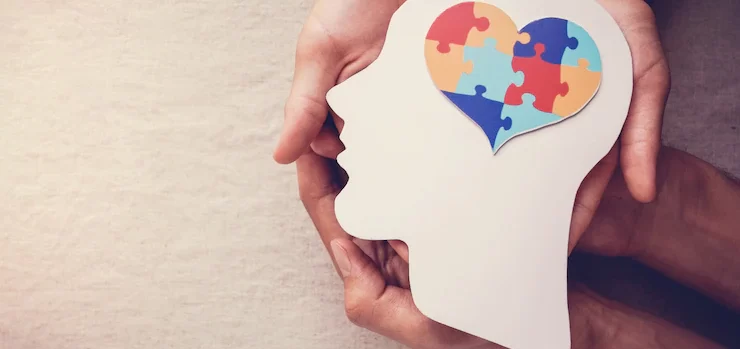Are Current Events Affecting Your Mental Health?
The past few years have been some of the most trying in human history. With a pandemic, international conflicts, and major political shifts, the world can have been an overwhelming place to live.
What has complicated these events is the access to constant 24/7 access to news stories and breaking events. We are involved in global affairs more than our ancestors could ever dream of, but having this ability makes us incredibly stressed.
While being informed is important to understand what’s going on in our modern world, obsessing over current events can be detrimental to your mental health.
As empathetic creatures, we want to constantly keep scrolling to understand what’s happening around the globe, but as humans, we must make boundaries with news coverage so that we can care for our well-being.
This article will discuss why we obsess over current events, how they affect our mental health, and what you can do to manage your news intake.
Why We Obsess Over The News During A Global Crisis

Being glued to the news or social media has become so commonplace that we hardly question why we do this. Though you would think humans would want to run away from stressful events, there is a psychological explanation for why we can’t seem to break away from our news feed during current events. As it turns out, we obsess over news stories due to our empathy and need to feel in control.
1. Empathy
It’s normal for humans to care about others. When people we care about are struggling, we usually try to help out in some way. So, as we witness world crises occur in real-time, we want to do something to help.
To our brains, reading the news is a form of helping out. If we know what’s going on, then we get empathetically invested. As a result, we become hooked to the stories we care about.
Whether it be war, political changes, famine, or a refugee crisis, scrolling through the news updates is a way of showing that we care and want to help without physically traveling to the location of the event.
2. Form Of Control
Gathering more information about a situation makes us feel in control. Global crises are too big for one person to bear, so we feel helpless when witnessing these events. Therefore, we look for a way to feel in control again.
But since there is little one person can do to fix such a large-scale problem, being informed seems to be the only way to feel in control. If we have as much knowledge as possible, we can emotionally or physically prepare for any updates or changes to the story.
3. Signs That Current Events Are Hurting Your Mental Health
Though being informed about global events is ultimately useful, obsessing over crises or negative news can seriously harm your mental health. People bound to the news develop symptoms of various mental health conditions and may ignore their own self-care in some cases.
4. You’re Neglecting Self-Care
Sometimes, people become so obsessed with the news they forget to step away from their screens and take care of themselves. It’s not unheard of that someone will skip a meal or a shower or lose sleep because they were scrolling through the latest news stories.
It’s one thing to be informed, but if you are neglecting your own well-being, then you are too obsessed with the news and current events.
5. You Feel Anxious And Depressed
Thanks to mirror neurons, when watching the news, we often feel the same emotions as if we were there. That’s why intense fear, horror, anxiety, and depression are common while watching the news.
It’s one thing to live through the event or watch it once; it’s another to keep revisiting the crisis every few hours or even minutes. This encourages a cycle of constant stress, which can lead to anxiety, depression, and even trigger symptoms of PTSD.
In fact, studies have shown that some people who watch the news of an event experience more stress than the ones who actually lived through it. That’s because they are reliving the event over and over again, so their brains think they are actually living through a traumatic event.
How To Manage Your Intake Of Current Events
So how do you stay informed without hurting your mental health? Though it will be difficult, you will need to create boundaries with your news intake and social media use. Read on to learn how.
1. Focus On News That Is Positive Or Helpful
Even in the worst crises, there are positives to find. There are heroes who always help and good things that happen, even if small. Finding the positives may make the crisis seem less daunting and give you a positive emotional boost.
Furthermore, you can also look for information that is constructive and helpful. For the pandemic, this may include updates on mask mandates or vaccines.
For global conflicts, this can include looking for organizations to donate to. Finding information that is helpful arms you with tools and knowledge that you can use to navigate or help the crisis without the added stress and anxiety.
2. Block Yourself From Certain Websites
If there are certain websites that you know trigger you, then block yourself from them. There are always news anchors who will give their “professional” opinion and analysis and random commenters on social media who will write comments just to irritate people. Do not engage with these forms of media.
You can still get information about the situation without becoming unnecessarily embroiled. Look for neutral news sources and block yourself from any sites or apps that cause unnecessary anger or stress.
3. Try A Media Fast
You may also need to block yourself from news and media altogether for a few days or at least a few hours each day. This allows your brain some rest and gives you time to focus on self-care and responsibilities.
You can also sign up for an app or email alerts through your favorite news source. That way, you will be alerted if something important occurs, eliminating the need to keep scrolling for important information.
Final Thoughts
Addictions to social media, the news, and current events are very real. And though it’s important to stay informed, we shouldn’t risk our mental health doing so.
By creating healthy boundaries with your news intake, you can stay engaged in current issues without harming your mental health. If you are interested in learning more about how current events and social media affect your mental health, you can find more information here.
Read Also:









